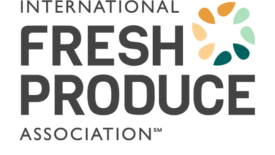Training
Why a Paradigm Shift is Needed in Food Safety Auditing
The future of food safety auditing will be different from what we know today, but the pace of change must be faster
February 6, 2023
How to Adapt Food Safety Culture Efforts to Functional Ways of Working
Food safety guiding principles are the same for all companies, but how they are used is partially determined by inherent biases and culture
December 9, 2022
Sanitation Prerequisite Programs as a Necessary Component of FSMS for Foodservice Establishments
It is imperative that a paradigm shift happens now in how risk is managed in foodservice establishments
October 11, 2022
Focusing Ahead—Processors' Priorities for the Near Term
Food processors are now focusing on projects and priorities put on hold during the pandemic, including maintaining or adding to food safety certifications
August 15, 2022
BIZTRACKS
Intertek Alchemy Releases Findings from 7th Global Food Safety Training Survey
August 5, 2022
Never miss the latest news and trends driving the food safety industry
eNewsletter | Website | eMagazine
JOIN TODAY!Copyright ©2025. All Rights Reserved BNP Media.
Design, CMS, Hosting & Web Development :: ePublishing













